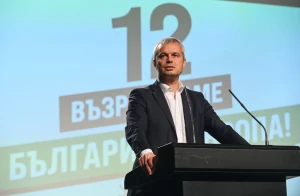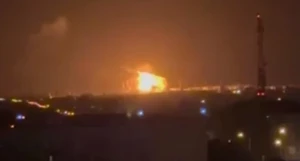
ISW outlines Putin's goals in declaring 'truce' for Christmas
Analysts of the Institute for the Study of War believe that by declaring a "Christmas truce" Russian President Vladimir Putin seeks to damage Ukraine's reputation and seize the initiative at the front
This was reported by the Institute for the Study of War (ISW).
Experts claim the ceasefire from 12:00 on January 6 to 24:00 on January 7, proposed by Vladimir Putin, is an information operation. Putin seeks to provide a 36-hour pause for Russian troops. He gives them the opportunity to rest, recuperate and reorient to resume offensive operations in critical areas of the front.
"Such a pause would disproportionately benefit Russian troops and begin to deprive Ukraine of the initiative. Putin cannot reasonably expect Ukraine to meet the terms of this suddenly declared ceasefire and may have called for the ceasefire to frame Ukraine as unaccommodating and unwilling to take the necessary steps toward negotiations. This is an intentional information tactic that Russia has previously employed," the ISW report says.
Experts stressed that the introduction of a ceasefire requires time to organize: "Kremlin Spokesperson Dmitry Peskov notably said on December 14 that Russia has no plans for a ceasefire for Russian Orthodox Christmas, so Putin’s sudden January 5 announcement was surprising."
Analysts add that if the Russian president was serious about a religiously motivated ceasefire, he had enough time to prepare.
"Putin’s framing of the ceasefire on religious grounds additionally reinforces another two-fold Russian information operation that frames Ukraine as suppressing religious groups and positions Putin as the true protector of the Christian faith. As ISW has previously observed, the Kremlin has weaponized discussions of Eastern Orthodox Christianity to accuse Kyiv of oppressing religious liberties in Ukraine," the authors argue. "These measures are not efforts to suppress religious liberties in Ukraine but rather are aimed at explicitly pro-Kremlin elements of the Russian Orthodox Church that have materially, politically, and spiritually supported Russian aggression against Ukraine.”
It is noted that the ceasefire proposal also supports Russian information operations about Russia's "holy war against an immoral Ukrainian society and its secular Western overseers."
In particular, it is claimed that Putin has not changed his maximalist plans in the war against Ukraine. In a conversation with Turkish President Recep Tayyip Erdogan on January 5, the Russian president stressed: "Moscow remains open to negotiations with Kyiv as long as such negotiations take into account new territorial realities."
Pro-war bloggers in the Russian information space reacted to the "ceasefire" with sharp dissatisfaction.
-
Russian President Vladimir Putin instructed the Minister of Defense Sergei Shoigu to introduce a ceasefire in Ukraine from 12:00 on January 6 to 24:00 on January 7. The Espreso TV informed how Ukraine reacted to this.
-
The United States and Germany reacted to Russia's statements about a ceasefire for Christmas in a very similar way: both believe that Putin just needs a break
- News














































